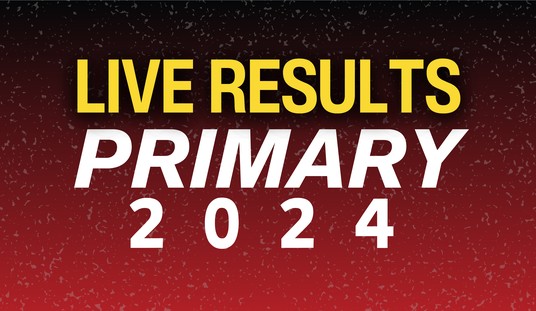With a record number of black candidates seeking Republican nominations in upcoming congressional races, the GOP may finally make progress in facing the most serious menace to its survival: the lack of support from any significant segment of the nonwhite population.
Not all of the 33 African-American contenders will win their primary contests, let alone the general election, but at least a half-dozen of them face promising prospects and could provide new energy for a party that desperately needs to shatter its lily-white image.
There are no Republicans among the present 41 members of the Congressional Black Caucus, or among the 24 members of the Hispanic Caucus -- an absence that reflects the party's woeful performance among minority voters in recent elections and may threaten its very existence.

Consider the historic campaign of 2008, when President Barack Obama bested John McCain by a solid margin of 7.2 percentage points. According to the authoritative exit polls, the vast majority of voters (74 percent) identified themselves as "white," and McCain won a landslide among this segment of the electorate, thrashing Obama by a resounding 12 points (55 percent to 43 percent). This was the same margin that George W. Bush commanded among white voters in his 2000 victory over Al Gore. In fact, because of the larger electorate, McCain's losing effort actually drew 9.5 million more votes overall than Bush's victorious campaign of eight years before.
Why, then, did Bush win the White House while McCain suffered humiliating defeat? The answer is that in eight years the nonwhite portion of electorate soared -- from 19 percent of voters to 26 percent of voters. Among these voters, Obama won by a 4-to-1 margin -- easily wiping out McCain's big advantage among white voters.
Recommended
For two reasons, these numbers command close attention for anyone concerned about the Republican future.
First, there is no chance that white voters will ever again comprise 74 percent of the electorate. Most projections for 2012 suggest that self-identified whites will comprise 70 percent or, at most, 72 percent of those who cast presidential ballots.
Second, it would be hard for any Republican to improve significantly on McCain's hefty 12-point margin among whites, which means that without an improved showing among Hispanics, blacks and Asians, GOP contenders will lose every time.
The math here is brutal and eye-opening. If Obama in 2012 wins the same percentage of the combined black, Asian and Hispanic vote that he won in 2008 (82 percent), then in order to beat him the GOP candidate would need to win an unimaginable 65 percent of all white voters -- whose numbers include such stalwart Democratic constituencies as gays, atheists, Jews and union members.
The 65 percent threshold represents a far higher percentage than Ronald Reagan won in his landslide against Jimmy Carter in 1980, or even his history-making 49-state re-election-sweep against Walter Mondale in '84.
Since white voters won't comprise larger portions of the electorate in future races, and since no Republican could compile a big enough white majority to win the election on those voters alone, that leaves only one possible path for GOP victory: more competitive performance among Hispanic, African-American and Asian citizens.
Fortunately, recent history demonstrates that such competition is possible. In 2004, the exit polls showed that Bush earned 44 percent of both Latino and Asian voters, and 11 percent of the black vote. This represents a huge advantage over the sorry performance of McCain.
Running against Obama, no Republican could have won a big percentage of the African-American community, but if McCain had merely won the same percentage as Bush four years before, he would have drawn 1.2 million more black votes for the GOP ticket -- an obviously meaningful difference in any close election.
Winning an electoral majority doesn't require capturing, or even splitting, every ethnic group, but no candidate can prevail if he (or she) gets overwhelmed among all nonwhite voters. In this context, the GOP doesn't need to win with each of the 33 black Republicans in current congressional contests, or even with most of them.
But if any of them carry their districts in November, it will help change the GOP image as a whites-only political organization and rejuvenate the once-vibrant party of Lincoln and Reagan that is still struggling against marginalization and irrelevance.

























Join the conversation as a VIP Member